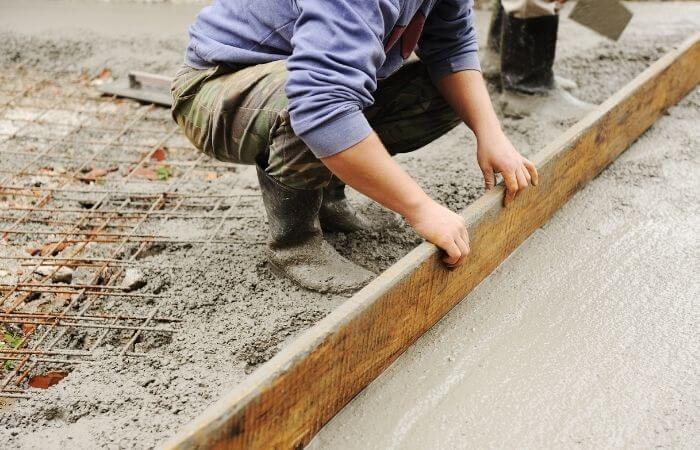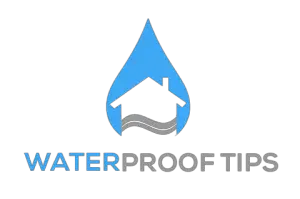Cement is the name of a chemical that holds two things together and/or is used to build structures.
When people speak of cement, they typically mean the active ingredient in concrete (besides sand, hardcore, water, etc.).
Concrete is not waterproof, but it is so dense that it takes water a long time to get through it.

Water under pressure will not make it through concrete, which is why concrete is used to create dams.
However, long-term exposure to water vapor, or continued exposure to water, will allow the moisture to seep through to the other side, though it is often a very slow process.
Sometimes You Want Water Absorbing Concrete
A common mistake with paving slabs is to make them with very dense concrete so that water takes a long time to soak through.
In these cases, small puddles form and mold and moss is quick to grow.
People often mistake a lighter paving slab for one that is weaker, but this is not the case, especially if the slab is laid correctly.
You probably do not want your concrete lined swimming pool to absorb water, which is why pools are usually tiled.
Yet, even those that are not waterproofed will only leak water at a very slow rate, especially if the pool is on the same level as the water table.
Waterproof Concrete is Usually Preferred
In many other cases, you want concrete to be waterproof. For example, you want your walls to be waterproof, and they are not.
Yet, water needs to be exposed to concrete for a very long time before it soaks all the way through.
In order for water to soak into your house, your walls would need to be wet for days, such as when there is a flood.
Otherwise, semi-water-permeable concrete is just fine on most occasions.
Concrete Should Not Need Waterproofing
Again, unless you are building a pond or swimming pool, you probably do not need to waterproof your concrete.
If you live in a flood-susceptible area, then perhaps have the lower part of your walls waterproofed, but that is all you need.
Good-quality paving will ensure that your drive or patio does not grow mold.
Adequate drainage is more important than waterproofing your slabs and block paving.
Concrete is Not Chemically Water Repellent
Most of the ingredients of concrete are not water repellent.
Sand is not, nor is cement, but the hardcore, such as small pebbles may be water-resistant.
Needless to say that there is almost nothing that makes cement and/or concrete water repellent or water-resistant.
The density of concrete means that water doesn’t cause problems like leaks or a loss of structural integrity.
Also Read:

